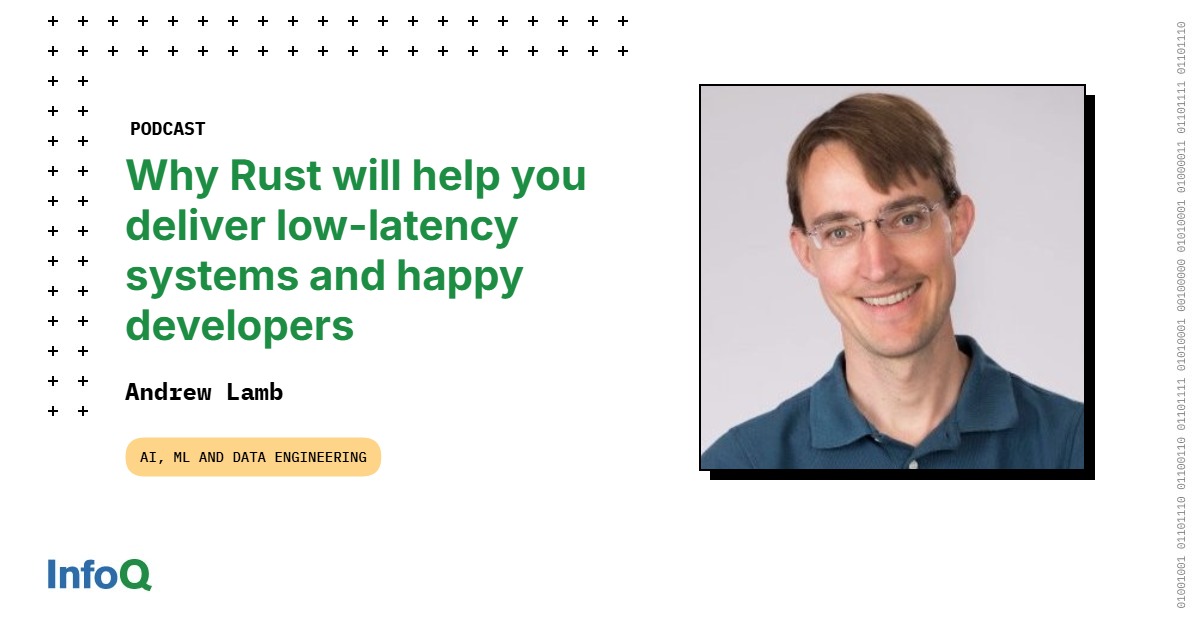
"Yes. Hello, my name is Andrew Lamb. I'm currently a staff engineer at Influx Data, and I've worked for five years professionally with Rust. Before that, I worked for another 15 years professionally and mostly with C and C++ on databases and other low-level systems. Recently, I've been working extensively on Apache Aero and Apache Data Fusion, and I serve as a PMC chair for both projects. But yes, I've been super excited about Rust. I'm thrilled to tell you all about it."
"I came to Rust because, at the point in my career when I joined Paul at Influx, I needed a job where I could program again. Paul said, "We're going to do it in Rust." And so that's why, from my perspective, we chose Rust because Paul said so, and I just joined it. I need to program at a job. And at that point, I thought it was hipster language. I'd seen a bunch of people discussing it, and I'd attended some early meetups."
InfluxData rewrote InfluxDB for version 3.0, moving to Rust and a different stack to modernize the engine. Andrew Lamb is a staff engineer at InfluxData with five professional years in Rust and fifteen years in C/C++ focused on databases and low-level systems. He works on Apache Arrow and Apache DataFusion and serves as PMC chair for both projects. Lamb joined the Rust effort because leadership decided to use Rust and he wanted to program again. He initially viewed Rust as a hipster language after early meetups and discussions. The team sought benefits of Rust for systems programming and database development.
Read at InfoQ
Unable to calculate read time
Collection
[
|
...
]